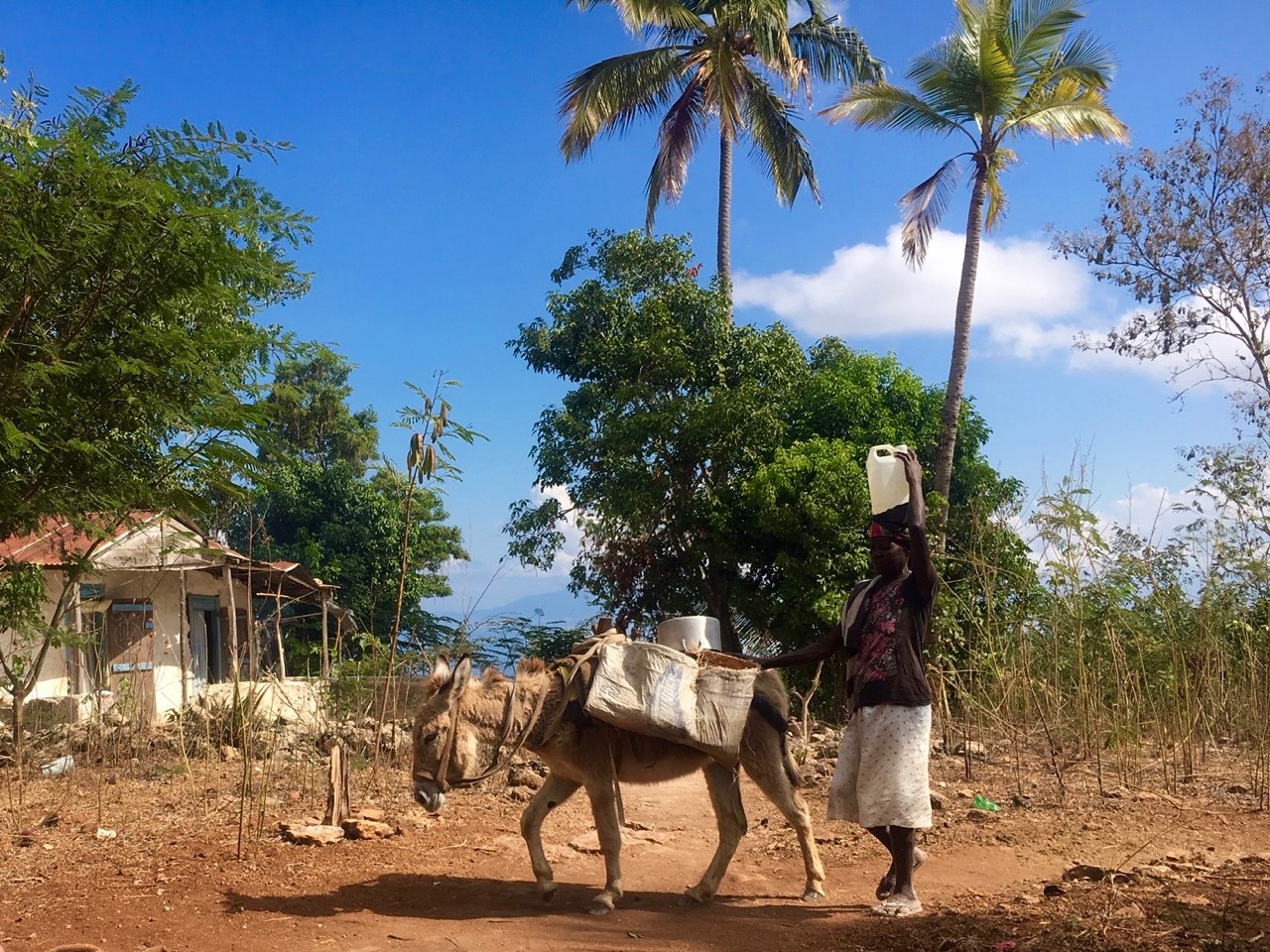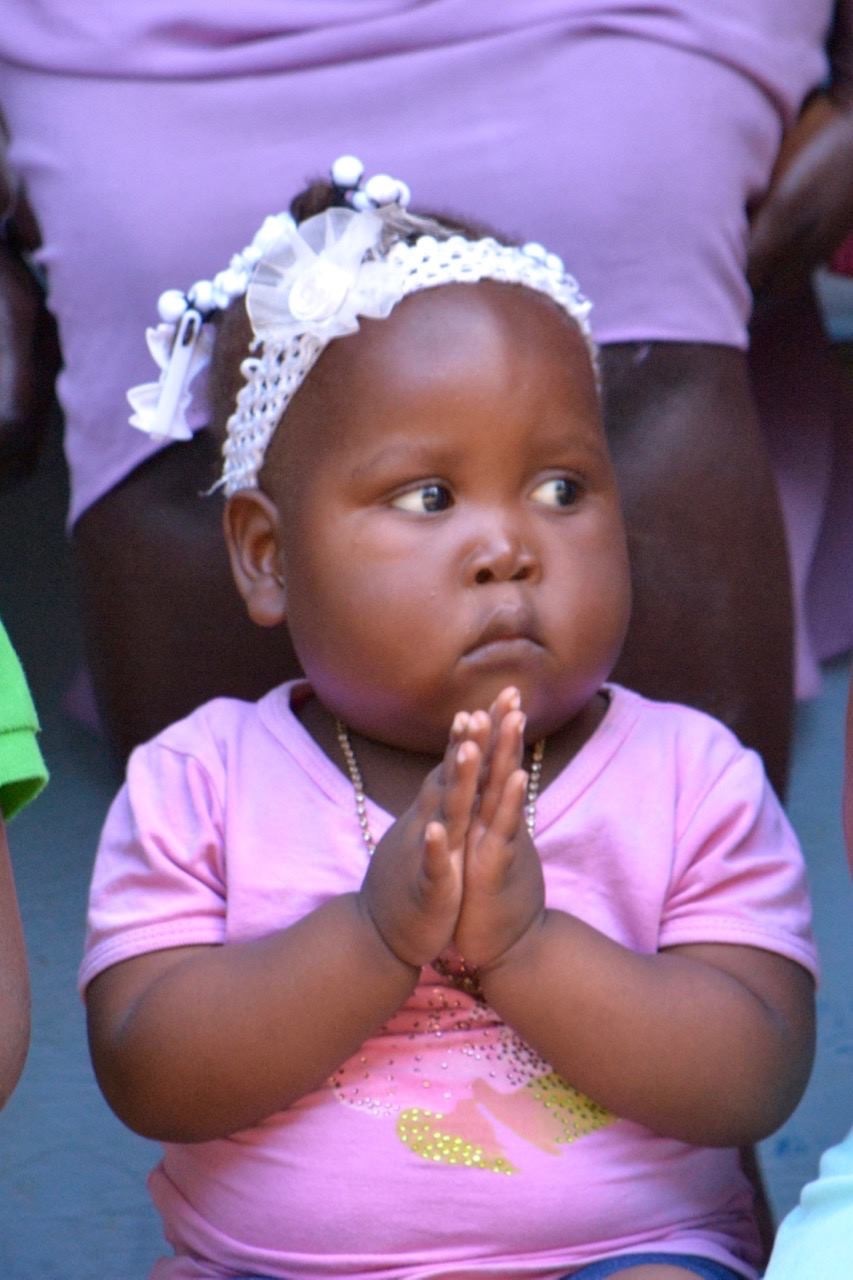A Letter from Cindy Corell, serving in Haiti
April 2020
Write to Cindy Corell
Individuals: Give online to E200482 for Cindy Corell’s sending and support
Congregations: Give to D507566 for Cindy Corell’s sending and support
Churches are asked to send donations through your congregation’s normal receiving site (this is usually your presbytery)
Greetings from Haiti!
I returned to Haiti in early March. I am so grateful to everyone who supported, nurtured, fed, and otherwise cared for me while I was in the U.S. after leaving Haiti at the end of September. I was evacuated because political protests made it unsafe to stay. While I was in the U.S., I visited many churches and shared stories of our ministries and partnerships. For this, and for your support–financial, prayerful, and personal–I thank you all.
This recent time of insecurity continues to take a profound toll on the people of Haiti, who are already suffering so much. Food, fuel, and clean water have been hard to come by. The World Food Program’s data now shows that one in three Haitians needs urgent food assistance and that half of the 11 million population is undernourished.
Due to continuing criminal activity and government instability, the U.S. State Department has placed a “Level 4” “Do Not Travel” advisory for Haiti. Between that and the frightening spread of COVID-19, we recommend that no one visit Haiti at this time.
I want to offer my thoughts on a couple of concerns in Haiti.
The first has to do with security. Criminal activity, including kidnapping, is on the rise. I am keeping a low profile, not traveling away from home except in rare cases, and then only with trusted drivers. My friends are anxious from the time when anyone leaves the house until they return. Yet, students are going to school, street merchants are busy, businesses are open, vehicles are on the roads, and life appears to be going on as usual. What is different is everyone’s extreme anxiety.
The second has to do with political unrest. As of mid-January, President Jovenel Moïse is ruling by decree. Because of the past few years’ unrest, elections for Parliament seats were not held. When those in office reached the end of their terms, there were no newly elected deputies and senators to take their places. Because there was not a quorum, Parliament was disbanded.
As a president ruling by decree, Moïse recently took this opportunity to install a prime minister. The prime minister, Joseph Jouthe, then handpicked his own Cabinet.The third is COVID-19. As of mid-March, there are no reported cases of people infected with the virus in Haiti, but the government has begun closing borders, ports, and airports. Flights from the U.S. still can unload passengers, but only according to strict rules. There are 11 reported cases of COVID infection in neighboring Dominican Republic. For more than two weeks, at least, authorities have taken the temperature of people entering Haiti. Haiti’s Ministry of Health has notified the public of basic protocols to prevent the transmission of viruses—handwashing, not touching your face, et cetera. Several people suspected of carrying the virus have tested negative. We continue to pray prayers of hope that this trend continues. With its ill-prepared medical resources, Haiti’s people would suffer greatly if the virus were to infect people here.
So, what does all this mean for the people of Haiti and our ministries of partnership and food sovereignty?
It means we need your support here even more. Your partnerships with schools, universities, hospitals, clinics, farmer organizations, our Joining Hands Network FONDAMA, and others mean so much. The leaders must work harder than ever to support their people.
Here are some ideas to be with your friends and partners in Haiti in spirit while not in person:
• Stay in touch with your partners in any way you can. Cell service still is working, so social media, texting, and phone calls work.
• Encourage your partners to remain strong. Applaud their courage in continuing to help others even as their lives are so negatively impacted.
• Use ding.com to send minutes to their cell phones.
• Send them photos of your churches praying for Haiti.
• Send them or post photos of you and/or your families holding signs that say: Nou renmen ou! (We love you!) Kenbe fem! (Hold on!) Nap priye pou nou tout! (We are praying for you all!) Bondye beni ou! (God bless you!)
• Give generously to the Special Offerings that support Presbyterian Hunger Program and Presbyterian Disaster Assistance, among others.
• But most of all, please continue to give. Share the stories with your churches and neighbors and friends. This story isn’t getting the U.S. news that other stories of protests are getting, so tell how your partners and friends and family there fight so hard for so little.
Thank you for all your support–prayerful and financial. I humbly ask for your continued support while we walk with the people of Haiti through these difficult times. We pray that one day soon, you will be able to visit with our sisters and brothers here in person.
Cindy
![]() You may freely reuse and distribute this article in its entirety for non-commercial purposes in any medium. Please include author attribution, photography credits, and a link to the original article. This work is licensed under a Creative Commons Attribution-NonCommercial-NoDeratives 4.0 International License.
You may freely reuse and distribute this article in its entirety for non-commercial purposes in any medium. Please include author attribution, photography credits, and a link to the original article. This work is licensed under a Creative Commons Attribution-NonCommercial-NoDeratives 4.0 International License.

